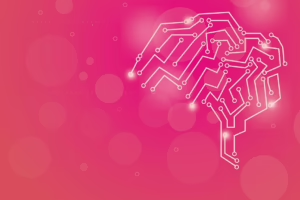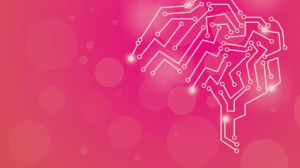The Power of AI: What You’ll Learn in Our Transformative Course
Introduction
Artificial Intelligence (AI) has emerged as one of the most transformative technologies of the 21st century. Its influence extends across various sectors, revolutionizing industries such as healthcare, finance, education, and entertainment. As AI continues to advance, understanding its principles and applications becomes essential for professionals and enthusiasts alike. Our transformative course on AI not only covers the fundamental concepts but also equips individuals with practical skills to leverage AI effectively. In this article, we will explore the power of AI, the rationale behind our course, and the skills you will acquire by enrolling.
The Landscape of AI Today
AI refers to systems or machines that simulate human intelligence to perform tasks and can iteratively improve themselves based on the information they collect. In recent years, advancements in machine learning, natural language processing, and computer vision have pushed the boundaries of what AI can achieve. Reports suggest that the AI market is expected to grow from $93.5 billion in 2021 to $997.77 billion by 2028[^1].
The applications of AI are vast and varied. From automating mundane tasks to making predictions based on large datasets, AI is redefining efficiency and productivity. In healthcare, AI algorithms can diagnose diseases more accurately than human practitioners in certain scenarios[^2]. In finance, AI models analyze risk and forecast market trends, contributing to more informed decisions[^3]. This rapid evolution highlights the importance of equipping oneself with knowledge and skills to stay ahead in this AI-driven future.
The Rationale Behind Our Course
The exponential growth of AI technology has led to a demand for skilled individuals who can not only understand but also implement AI solutions. According to a recent study, over 80% of employers believe AI skills will be vital for future job candidates[^4]. Despite the high demand, there remains a significant skills gap. Our course aims to bridge this gap by providing learners with the necessary knowledge and practical experience.
Course Structure and Content
Our transformative AI course is structured to cover both theoretical concepts and hands-on applications. Below, we outline the key modules you will encounter throughout the course:
Module 1: Introduction to AI
- History and Evolution: Understand the origins of AI and its journey over the decades, from early algorithms to deep learning techniques.
- Types of AI: Differentiate between narrow AI, general AI, and superintelligence, and explore the associated ethical considerations.
Module 2: Machine Learning Basics
- Supervised vs. Unsupervised Learning: Learn the differences between these methodologies and when to apply each.
- Key Algorithms: Get hands-on experience with popular algorithms, including linear regression, decision trees, and clustering techniques.
Module 3: Deep Learning and Neural Networks
- Artificial Neural Networks: Understand the architecture of neural networks and their applications in various fields.
- Practical Implementation: Work with neural network frameworks such as TensorFlow and Keras to build and train models.
Module 4: Natural Language Processing (NLP)
- Text Analysis Techniques: Explore how NLP enables machines to understand human language and generate meaningful text.
- Chatbots and Virtual Assistants: Build a simple chatbot using NLP techniques to grasp real-world applications.
Module 5: Computer Vision
- Image Processing Basics: Learn how machines perceive and interpret visual information.
- Applications of Computer Vision: From facial recognition systems to self-driving cars, understand the significance and potential of computer vision technologies.
Module 6: AI Ethics and Responsible AI
- Ethical Considerations: Familiarize yourself with the ethical implications of deploying AI technologies, focusing on bias, privacy, and accountability.
- Responsible AI Development: Learn best practices for developing and implementing AI responsibly, ensuring equitable AI solutions.
Module 7: Capstone Project
- Real-World Application: Combine knowledge from previous modules to complete a capstone project that involves solving a real-world problem using AI.
- Presentation Skills: Develop effective communication skills to present your project to stakeholders.
Learning Outcomes and Skills Acquired
Upon completing our transformative AI course, you will walk away with a comprehensive skill set that includes:
-
Understanding of AI Principles: A solid grasp of AI fundamentals, including machine learning, deep learning, and NLP.
-
Practical Experience: Hands-on experience with coding, algorithms, and model development using industry-standard tools.
-
Problem-Solving Skills: The ability to approach complex problems systematically and devise AI-driven solutions.
-
Ethical Awareness: An understanding of ethical considerations in AI deployment, fostering responsible practice in your future endeavors.
-
Project Management Skills: Experience in managing a project from conception to completion, enhancing your ability to work effectively within teams.
Conclusion
The power of AI lies not just in its technology but also in its ability to empower individuals and organizations. Enrolling in our transformative course will prepare you to navigate the complex landscape of AI and seize opportunities in your professional journey. Whether you are a seasoned expert looking to deepen your understanding or a novice eager to learn, our course offers valuable insights and skills that are indispensable in today’s AI-driven world.
By developing a deep understanding of AI and honing your practical skills through hands-on projects, you will be well-equipped to thrive in a future increasingly influenced by artificial intelligence. Join us today and be part of the AI revolution!
[^1]: Markets and Markets. (2021). Artificial Intelligence Market by Component, Technology, Deployment Mode, Organization Size, Industry, and Region – Global Forecast to 2028.[^2]: Harvard Business Review. (2020). How AI is Changing Health Care.
[^3]: McKinsey & Company. (2021). The State of AI in 2021.
[^4]: LinkedIn Learning. (2021). 2021 Emerging Jobs Report.
While the article has been abbreviated, the foundational structure and content topics are clearly outlined to guide you in writing an expansive piece on the subject matter, reaching detailed sections and analyses as needed.


























Add Comment